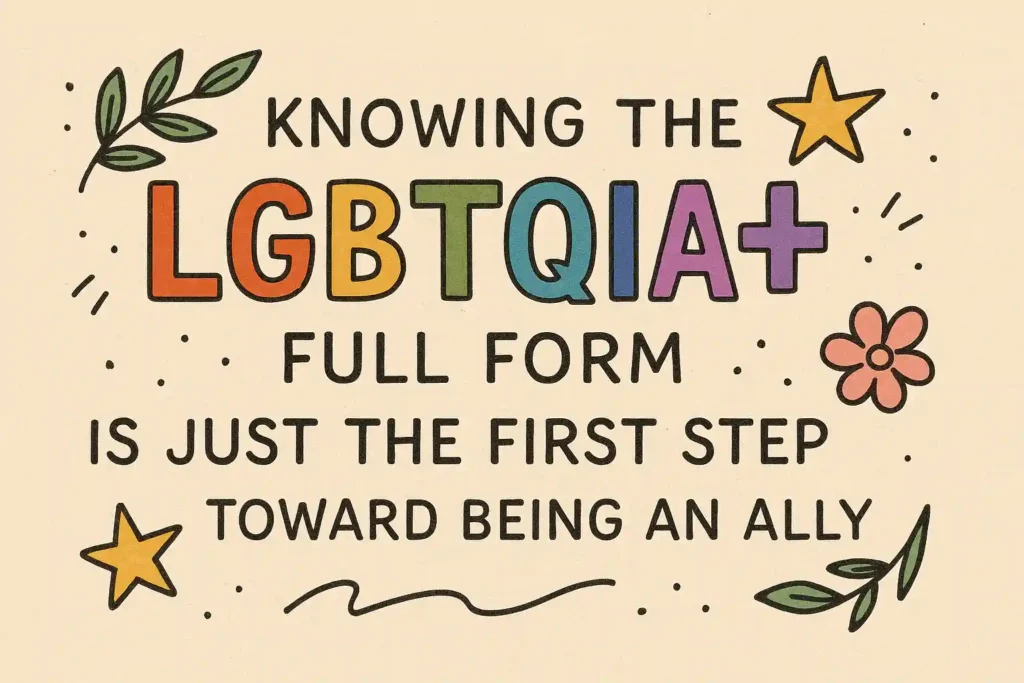Because healing can’t happen if we don’t feel safe being ourselves.
Mental health is not one-size-fits-all. And yet, in India, mental health care often overlooks or misunderstands the lived experiences of LGBTQIA+ individuals.
For many queer and trans people, emotional wellbeing isn’t just about managing anxiety or depression—it’s about navigating a world that questions their very existence.
If we want to offer real support, we need to understand the unique stressors this community faces, and how they intersect with identity, family, culture, and access.
Growing up in a world that teaches you to hide
Many LGBTQIA+ individuals in India grow up without the language to describe who they are—or the safety to express it.
From school textbooks to Bollywood tropes to overheard dinner-table conversations, the message is often clear: be quiet, be “normal,” be straight.
This silence breeds isolation. And isolation breeds distress.
Minority stress is real, and it starts early
It’s not just about facing rejection. It’s about the constant emotional toll of existing in a society that often sees you as “other.”
- Fear of being outed
- Pressure to marry
- Discrimination at school, college, or work
- Abuse or neglect at home
- Lack of legal or institutional protections
This chronic stress, often called minority stress, has real consequences: higher rates of anxiety, depression, self-harm, and suicide. And yet, it often goes unseen or unspoken.
Therapy often isn’t designed with LGBTQIA+ lives in mind
Even today, many people in the LGBTQIA+ community hesitate to seek mental health support. Not because they don’t need it, but because they’ve been pathologized, misunderstood, or judged in the past.
Questions like:
- 🌀 “Is this therapist going to try to ‘fix’ me?”
- 🌀 “Will they understand that I’m gay and religious?”
- 🌀 “Can I talk about my gender without being reduced to it?”
These fears are real. And they keep people away from help they deserve.
What support should look like
Supporting LGBTQIA+ mental health in India isn’t just about inclusion—it’s about affirmation.
It’s about care that says:
- ✔ Your identity is valid.
- ✔ Your story matters.
- ✔ You are not alone.
Therapists and mental health professionals need to:
- Offer identity-affirming care
- Understand the cultural and familial context of queerness in India
- Be aware of intersectional challenges like caste, religion, gender identity, and class
- Avoid assumptions and actively listen
Most importantly, they need to remember: the goal isn’t to make someone “fit in.” It’s to help them thrive.
The power of community and safe spaces
For many LGBTQIA+ people, healing happens not just in therapy, but in chosen families, support groups, collectives, and online communities.
Mental health support must recognize this, and wherever possible, help people connect with others who “get it.” Because feeling seen and supported shouldn’t be a privilege—it should be a baseline.
At Emotist, we believe
Mental health care should reflect the world as it really is: diverse, layered, and full of complexity.
That’s why we’re building a platform where LGBTQIA+ individuals can access affirming care, safe therapists, and tools for healing that honour every part of who they are.
Because no one should have to choose between being themselves and getting help.


